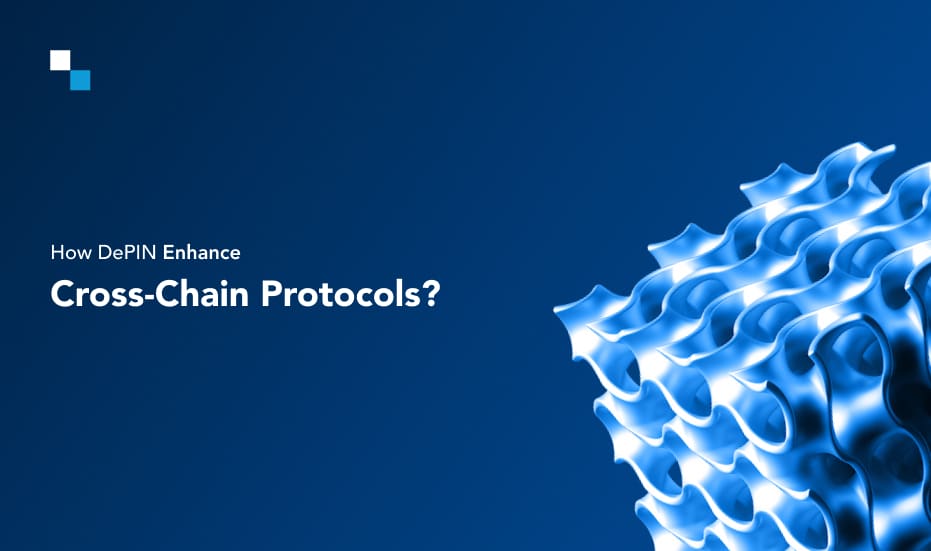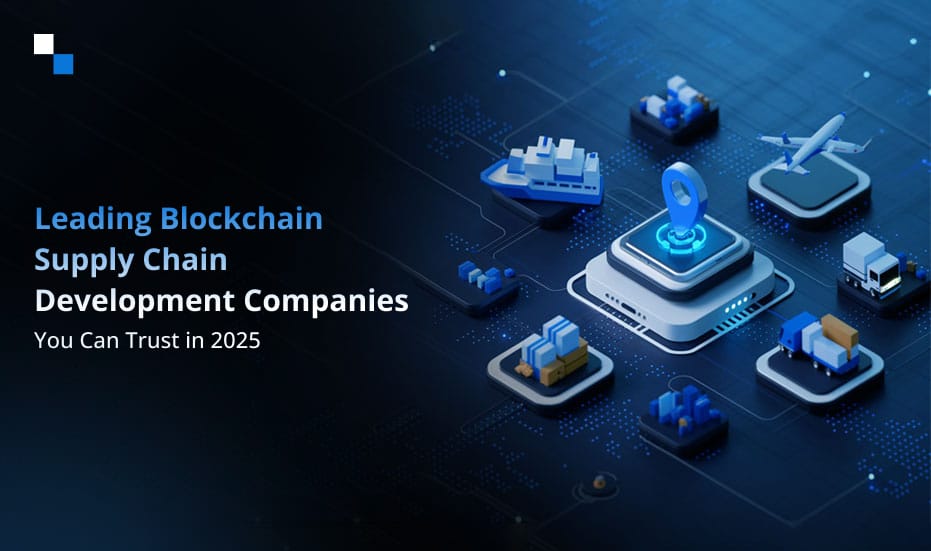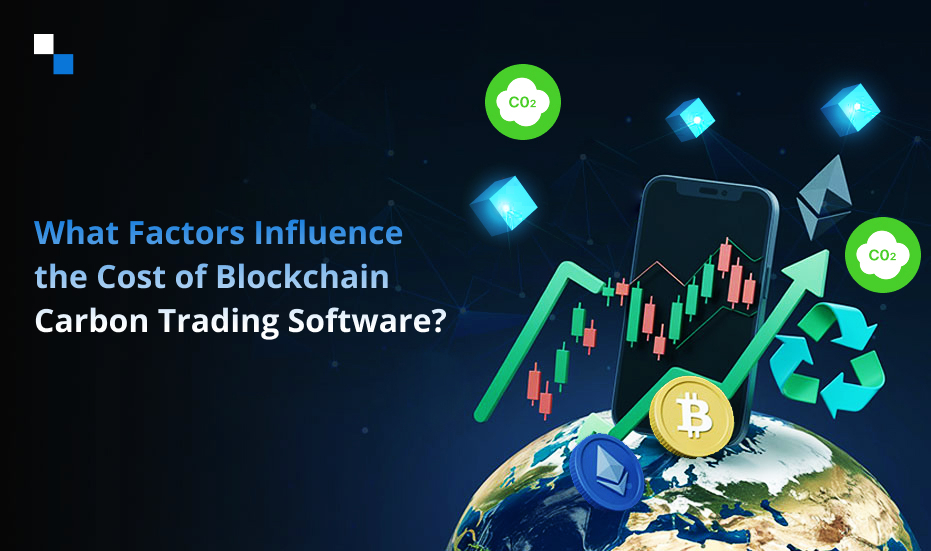Blockchain has sparked innovation across various sectors by delivering decentralized, secure, and transparent operations. However, with the rise of multiple blockchain ecosystems, the demand for smooth interoperability has become increasingly urgent.
Cross-chain protocols aim to connect these ecosystems while enabling the transfer of assets and data between various blockchains. However, conventional cross-chain systems often struggle with challenges like fragmented communication, scalability bottlenecks, and security flaws. This is where DePIN(Decentralized Physical Infrastructure Networks) comes into play.
DePIN revolutionizes infrastructure management by offering a decentralized, secure, and transparent approach to asset tracking, verification, and maintenance. DePIN promotes collaboration among various stakeholders including individuals, organizations, and service providers by incentivizing participation and resource sharing.
This blog unveils the primary challenges of existing cross-chain protocols and how DePIN solutions solve these issues with real-world examples.
Limitations in Cross-Chain Protocols and How DePIN Solutions Help
Problem 1: Fragmented Communication Across Blockchains
A major issue with traditional cross-chain protocols is the fragmented communication between blockchains. Each blockchain operates independently with limited interaction which leads to inefficiencies and delays in transferring data and assets across networks. In industries that rely on real-time data exchange across multiple blockchains, this fragmentation can cause serious disruptions.
Solution
By utilizing a network of distributed and decentralized nodes, DePIN solutions eliminate the need for fragmented, siloed networks. This approach allows different blockchain platforms to interact efficiently and ensure data is shared in real-time without delays or errors.
Example
Consider the global logistics industry, where companies rely on multiple blockchain networks to track assets. Fragmented cross-chain communication hinders efficient global tracking which results in delays, data inconsistencies, and increased costs. DePIN development solves this by linking multiple blockchains through decentralized nodes. With DePIN solutions, logistics companies can track shipments across the world with seamless integration and improve overall operational efficiency & transparency.
Problem 2: Scalability Bottlenecks with Growing Demand
As blockchain adoption accelerates, so does the demand for cross-chain transactions. Traditional centralized cross-chain protocols often encounter scalability bottlenecks during periods of high transaction volumes which leads to slower transaction processing, increased fees, and a poor user experience.
Solution
DePin can dynamically scale with growing demand. Unlike centralized systems, where bottlenecks are common under high traffic, DePIN solutions allow blockchain networks to scale efficiently. This scalability ensures that cross-chain transactions remain smooth and cost-effective even as demand increases.
Example
Take decentralized finance platforms as an example. These platforms frequently experience high transaction volumes, especially during market surges. Traditional cross-chain protocols often struggle under such pressure which results in slower transactions and higher fees. With DePIN development, DeFi platforms can scale seamlessly by utilizing decentralized physical nodes that adapt to the volume. Similarly, energy trading platforms can also benefit from DePIN solutions by managing fluctuating demand without bottlenecks.
Problem 3: Security Vulnerabilities in Cross-Chain Bridges
Cross-chain bridges, which facilitate asset transfers between different blockchains, are often centralized and prone to security vulnerabilities. Hackers frequently target these bridges, exploiting their single points of failure to steal assets. This lack of security undermines trust in cross-chain transactions.
Solution
By removing centralized intermediaries, DePIN solutions reduce single points of failure and create a more secure cross-chain environment. Decentralized physical infrastructure ensures that transactions are processed without the risks associated with centralized bridges which makes cross-chain interactions more secure and reliable.
Example
In 2021, the Poly Network hack resulted in the loss of over $600 million due to vulnerabilities in the cross-chain bridge. Such incidents highlight the need for a more secure approach to cross-chain transactions. DePIN development eliminates these risks by decentralizing the infrastructure and ensuring that there are no intermediaries or single points of failure that can be exploited. This significantly improves the security of cross-chain asset transfers and provides peace of mind to businesses and users alike.
Problem 4: Lack of Real-World Asset Integration
Tokenizing digital assets on blockchains has been relatively easy, but integrating real-world assets such as real estate or energy resources into the blockchain ecosystem remains a challenge. Traditional cross-chain protocols lack the infrastructure to connect physical assets with blockchain networks which limits the scope for automating and decentralizing industries that rely on physical assets.
Solution
DePIN solutions bridge the gap between physical infrastructure and blockchain networks. By enabling the tokenization of real-world assets, DePIN development services allow for the full lifecycle management of these assets across blockchains. This paves the way for automation and decentralization of industries dealing with physical assets.
Example
In the real estate industry, tokenization of physical properties can drastically streamline ownership transfers and reduce paperwork. However, integrating real-world assets like properties into blockchain networks requires reliable infrastructure for accurate, real-time data management. DePIN development addresses this challenge by connecting physical property records to blockchain systems through decentralized infrastructure. Similarly, in the energy sector, DePIN solutions allow for the tokenization of energy resources, which facilitates decentralized energy trading and enhances operational efficiency.
Problem 5: High Dependency on Centralized Intermediaries
Challenge
Many traditional cross-chain protocols depend on centralized intermediaries to facilitate asset transfers and communication between blockchains. This introduces additional costs, delays, and security vulnerabilities which undermines the decentralization that blockchain technology promises.
Solution
DePIN development services eliminate the need for centralized intermediaries by decentralizing the network infrastructure. In a DePIN solution, cross-chain transactions occur through a distributed network of physical nodes which creates a trustless and efficient system. This reduces costs, improves security, and enhances the overall decentralization of the blockchain ecosystem.
Example
In telecommunications, data transfers across blockchains often rely on centralized intermediaries, which can cause delays and increase costs. With DePIN solutions, telecom companies can use decentralized physical infrastructure to facilitate cross-chain data transfers without intermediaries. This not only reduces costs but also improves the speed and security of transactions. Similarly, in supply chains, DePIN development removes intermediaries which allows for decentralized tracking and verification of goods across multiple blockchains.

Conclusion
There is no denying that the limitations of traditional cross-chain protocols hinder the full potential of blockchain interoperability. DePIN solutions provide a revolutionary approach to overcoming these challenges by decentralizing physical infrastructure and enhancing communication, scalability, security, and asset integration across blockchains. For businesses seeking to integrate DePIN solutions into their operations, working with a reliable DePIN development company like Antier is essential.





